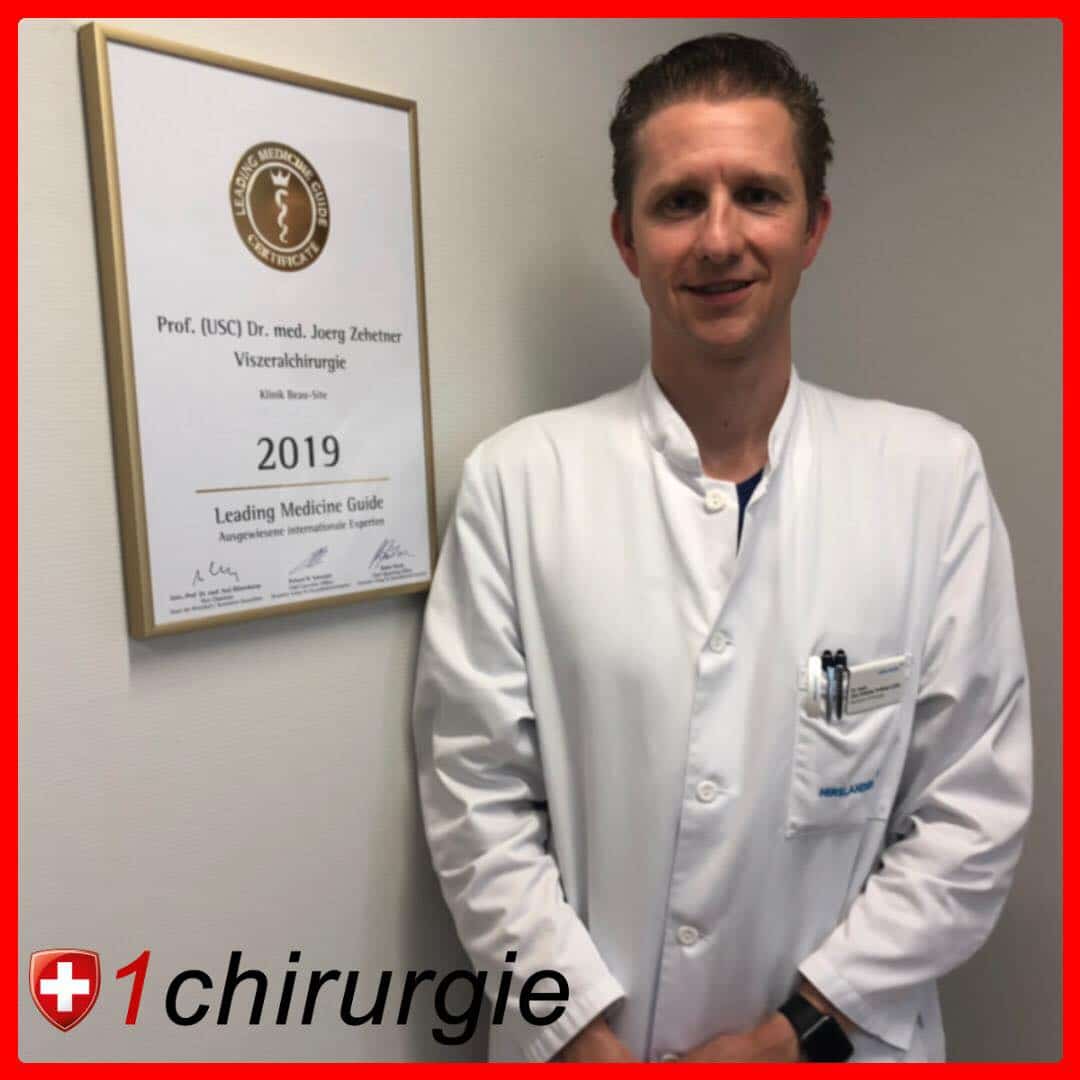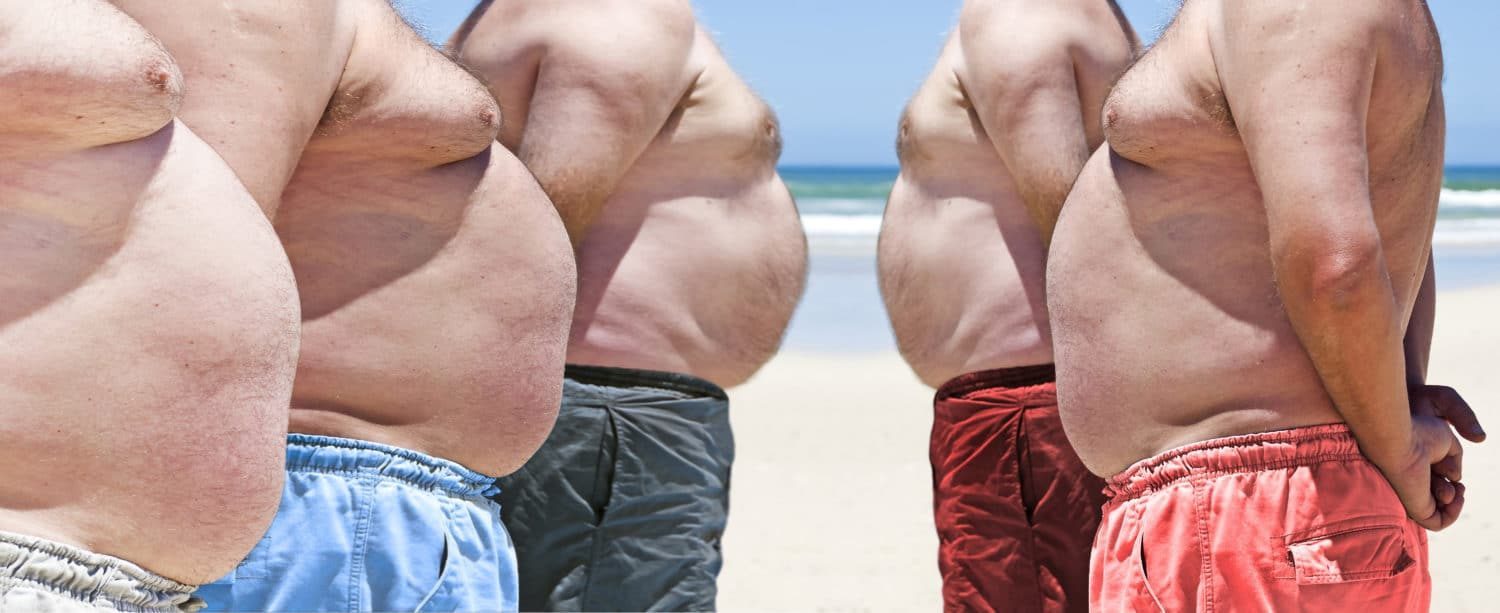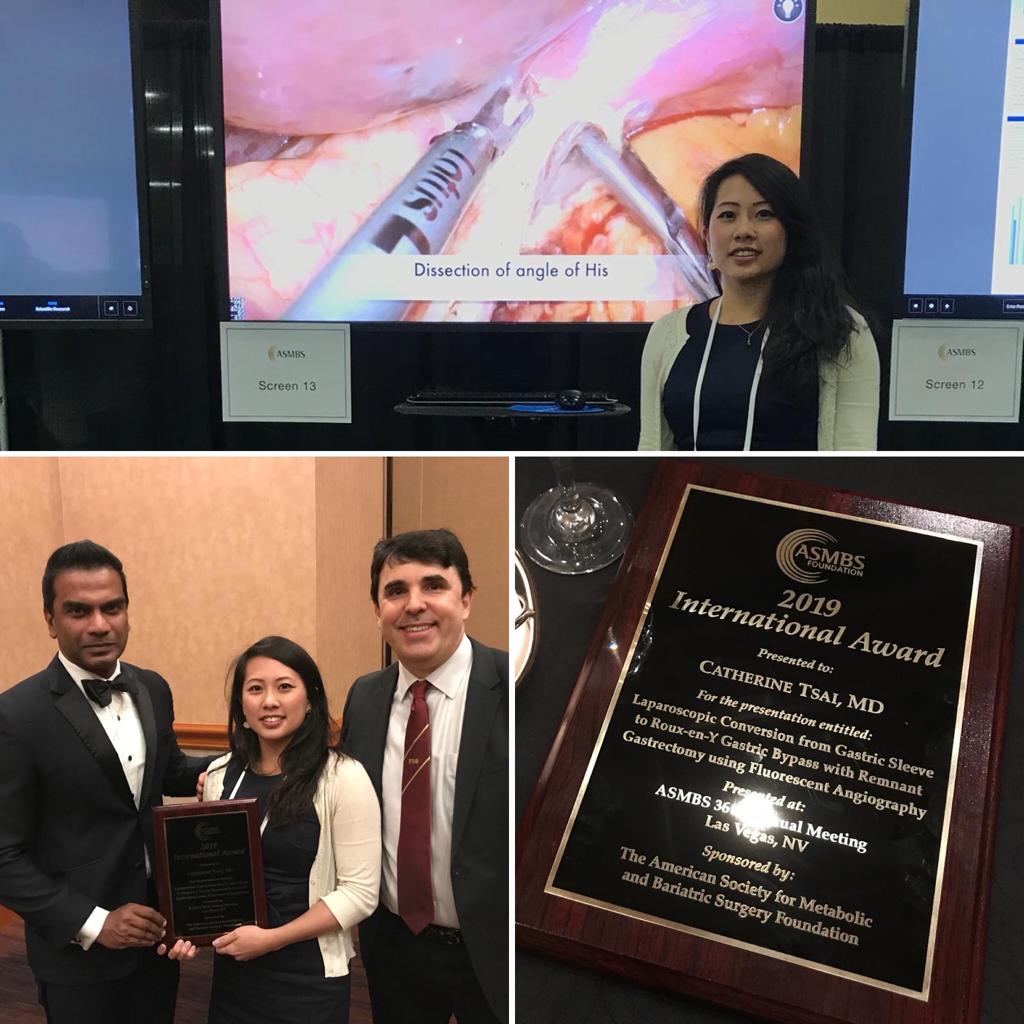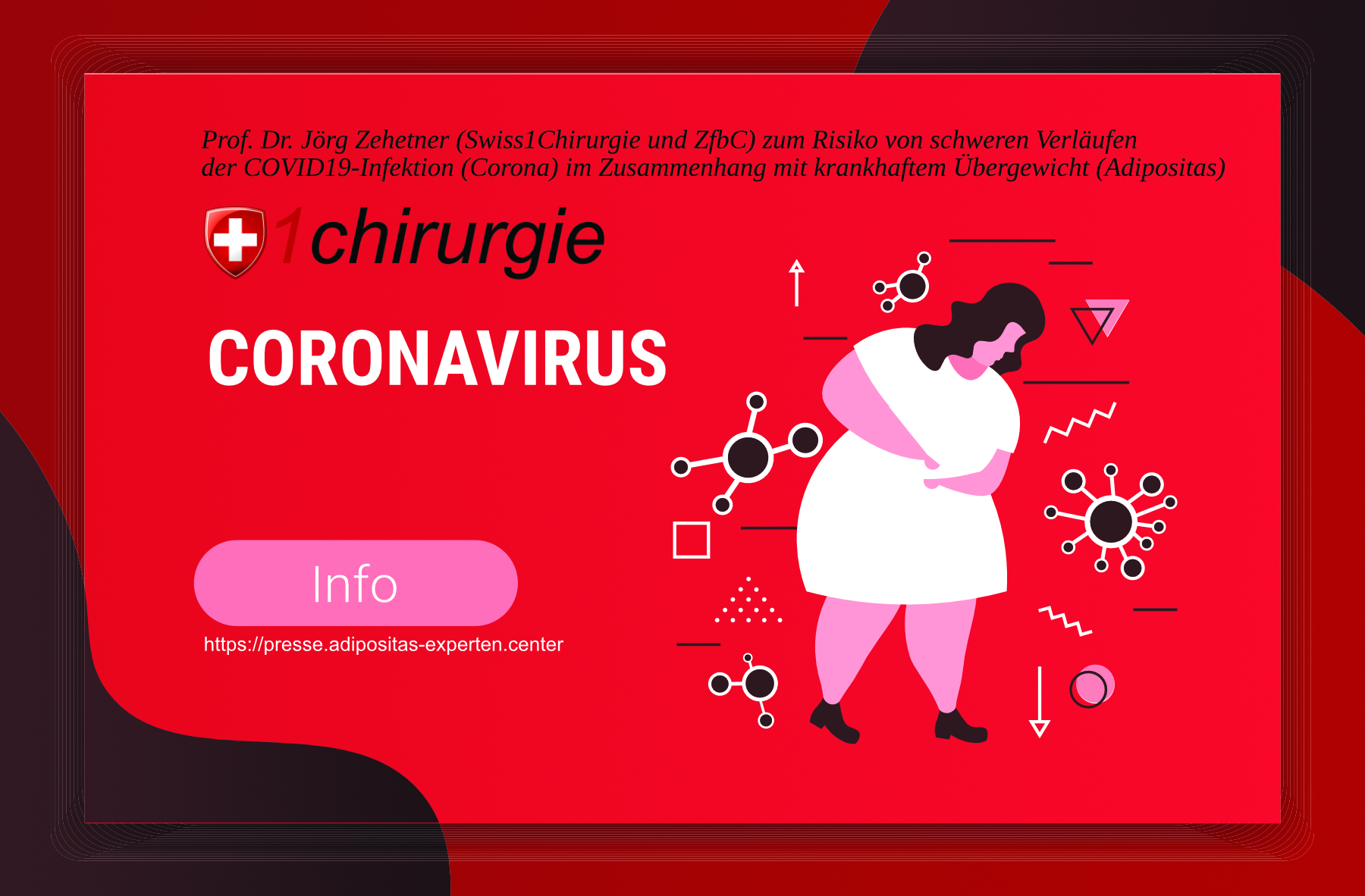The need for professional services in obesity surgery is increasing. Also in Thun and the surrounding area. And so it was only a logical step that the clinic of Dr. Naef in Thun now became part of the network of specialized facilities of Swiss1Chirurgie. You can learn more about this in the article.
Continue readingSwiss1Chirurgie with new location in Brig
With the new clinic in Brig, Swiss1Chirurgie, under the leadership of Professor Dr. Jörg Zehetner, has now also found a location in the Upper Valais. With the specialisation in obesity surgery, the treatment of abdominal hernias and reflux diseases, the population in the region is thus provided with a medical service that is probably unique in Valais in this specialisation.

Until now, Professor Dr. Zehetner’s specialist medical services were related to the catchment areas of Bern and, more recently, Solothurn. With the engagement in the medical centre Praxis Dr. Summermatter in Bahnhofstrasse 1 in Brig, the specialised surgeon now also provides his professional services directly in the Valais. This seems to be quite necessary, as the provision of such specialised services was rather meagre to non-existent.
The work in the new medical centre is supported by the specialist colleague Alejandro Metzger, MD, who also specialises in obesity and abdominal surgery. In this way, a professional service can be established in Valais under the banner of Swiss1Chirurgie. It is also interesting to note that a specialist in cosmetic surgery and reconstructive surgery has set up shop directly in the medical centre. This can be a complementary component in many cases of obesity surgery, ensuring the restoration of the patient’s complete health and aesthetic well-being. It also makes sense that Dr. Summermatter’s clinic also offers special nutritional counselling services. This closes a circle of medical competencies that are evidenced above all by Professor Dr Zehetner and his colleague Dr Metzger.

The fact that the services offered by the specialists for bariatric surgery meet with a high level of acceptance, especially here in the Upper Valais, was already evident at the opening of the clinic with an open day. For a whole eight hours, Professor Dr Zehetner and Dr Metzger answered the questions of the interested visitors and the invited expert colleagues. This proves that there is definitely a great demand here for the specialised services of obesity surgery and the treatment of reflux diseases, which can now be satisfied in the new treatment rooms of Swiss1Chirurgie.

Dr. Zehetner awarded “Leading Medicine Guide 2019”
 When medical services in Switzerland are awarded the “Leading Medicine Guide”, then professional colleagues and patients can be sure that this is a truly high-quality range of services.
When medical services in Switzerland are awarded the “Leading Medicine Guide”, then professional colleagues and patients can be sure that this is a truly high-quality range of services.
The “Leading Medicine Guide 2019” was awarded to swiss1chirurgie under the leadership of Dr Zehetner. With its speciality in obesity surgery, abdominal hernias and reflux diseases, the group practice has dedicated itself to a discipline that is a true heartfelt concern for many Swiss people. Dr. Zehetner’s clinic has long since scored points not only with its specialised range of services, but above all with the professionalism of the specialist medical services with which Dr. Zehetner surprises not only the patients, but also the specialist colleagues.
After a long day of surgery in the clinic, Dr. med. Jörg Zehetner was able to accept the coveted prize on 30.06.2019. Justified pride is mixed with a healthy dose of self-confidence and the certainty that swiss1chirurgie will continue to provide services that are entirely dedicated to the well-being of patients. In addition to his work in the operating theatre, Dr Zehetner also addresses the concerns and needs of his patients in a large number of lectures and individual consultations.
For Dr. Zehetner, the focus is not on personal gain from his professional work, but rather on patient satisfaction. After all, problems with obesity, abdominal hernias and reflux diseases are no longer individual diseases, but have long been medical problem areas of our affluent society, in which obesity, for example, is no longer an isolated phenomenon due to a constantly available supply of food.
Beyond his work as a surgeon, Dr. Zehetner therefore also devotes himself to educating people about healthy nutrition and healthy lifestyles, which might cut off the great demand for surgical interventions, but are more than close to his ethical responsibility as a medical doctor. This means that the “Leading Medicine Guide 2019” award is certainly more than just deserved.
IFSO 2019 Congress in Madrid
Morbid obesity is a chronic disease
After London 2017 and Dubai 2018, the World Congress of the International Federation of Societies of Obesity Surgery (IFSO) was held this year in the Spanish capital Madrid.
One of the topics was the stigmatisation of overweight patients. There was agreement on this topic that morbid obesity is indeed a chronic disease and requires appropriate treatment. The times when overweight patients are ridiculed, laughed at or even insulted in public must finally be over. With obesity surgery, this group of patients also has access to a variety of different treatments and interventions that can successfully address and permanently treat this condition.
This was an important topic in the meeting of bariatric surgery specialists from the cantons of Switzerland, who had the opportunity to exchange views on this topic at a joint dinner during the congress.
What is the state of facts?
In Switzerland, there are primary centres and centres of reference for obesity surgery. Whereas in a primary centre only the first operation for patients with BMI 35-49 may be performed, in a reference centre re-operations (new corrective operations) and very heavy patients (BMI greater than 50) may be operated on. This is an arrangement that makes it difficult for many patients to undergo continuous treatment that is ultimately accompanied by visible, tangible and countable success in the long run.
Swiss1Chirurgie has responded to this together with the Beau-Site clinic in Bern and the Espace Chirurgie clinic in Biel. The obesity surgeons in Biel perform the initial operations at the Hirslanden Klinik Linde and the re-operations with Dr Zehetner at the Klinik Beau-Site. At the Beau-Site Clinic in Bern alone, 500 of the 4,500 surgical procedures performed annually throughout Switzerland are carried out. At the Centre for Bariatric Surgery in Bern (ZFBC), these patients are pre-cared for, operated on by Swiss1Chirurgie surgeons and then followed up again at the ZFBC. This means that within the Hirslanden network, Swiss1chirurgie has the greatest expertise in bariatric surgery in Switzerland and guarantees the highest level of patient safety.
What patients with problems after obesity surgery can do
Have you already had obesity surgery and are not receiving follow-up care? Or have you put on a massive amount of weight again after the operation and don’t know what to do next?
Ask your general practitioner to refer you to one of our Swiss1Chirurgie locations in Bern, Solothurn or Brig (www.swiss1chirurgie.ch). We can then admit you to our aftercare programme at the Centre for Bariatric Surgery (www.zfbc.ch) or arrange for clarifying examinations for a possible corrective operation to lose weight again.
Of course, the World Congress also focused on the big issues in obesity surgery. Here are a few key points on the results:
- The most common obesity surgery worldwide is the tube stomach (sleeve).
- The gastric band is hardly ever done anymore, under 1% of all overweight operations.
- In patients with reflux, the gastric bypass has advantages over the sleeve.
- In severely overweight patients, OAGB (one loop anastomosis gastric bypass) is also a possible option.
- Endoscopic revisions such as anastomotic stenosis with Apollo Overstitch are used more frequently, especially in cases of dumping and recent weight gain.
Learn more? Then simply contact me and let me advise you on the most promising options for the surgical treatment of obesity and reflux disease.
Quick BMI calculator for the health conscious
The new BMI calculator from the Centre for Bariatric Surgery (ZfbC) and swiss1chirurgie combines a high level of convenience with the best tips for any treatment needs.
If you want to know your weight, you stand on the scales. But if you want to know a little more about your physical condition, you can now use the new BMI calculator from the ZfbC/swiss1chirurgie. Without long calculations, the digital BMI calculator determines the body mass index quickly, reliably and with only a few entries, which provides important information about whether the body weight is a health risk.
Just by stating the current weight, height and age, conclusions can be drawn as to whether the values are within the norm or above it. These personal details can be supplemented by the desired weight, details of physical activity and any efforts to achieve weight loss.
The more information is provided, the more concrete the calculations and also the statements on whether there is an urgent need for action and how and under what time frame the weight can be positively influenced under the given conditions.

The new BMI calculator of the Centre for Bariatric Surgery Bern is available on the website of the ZfbC https://www.zfbc.ch/bmi/ and swiss1chirurgie https://www.swiss1chirurgie.ch/bmi/ as well as in the newly developed app https://m.swiss1chirurgie.ch#/module/5784837 and can be used immediately. In this way, health-conscious people can in fact check their current status at any time and from anywhere, even with their smartphone, and make decisions to optimise their body weight in terms of health. The link between the BMI calculator and the medical tips for the prevention and treatment of morbid overweight (obesity) is extremely interesting. Causes, correlations and effects are presented here just as comprehensibly as the treatment approaches of the ZfbC.
The BMI calculator of the ZfbC/swiss1chirurgie has the potential to cause a sensation not only in Switzerland but also internationally. The new BMI calculator will therefore also be presented by Prof. Dr. Jörg Zehetner at a congress to be held soon in the USA, CHINA, MIDDLE EAST, EUROPE and ASIA. There, the digital BMI calculator will be able to show directly what it can really do. The interest of the experts is just as great as the need of the population. After all, the USA is one of the countries in the world where morbid obesity is one of the main causes of secondary diseases such as high blood pressure, heart disease, musculoskeletal disorders and diseases, heart attacks and strokes due to obesity. This also includes the psychological and social impairments that are often associated with being significantly overweight.
With the convenient BMI calculator of the ZfbC, the way to an easy digital calculation of the Body Mass Index is opened for medical laymen as well as for medical specialists. Although BMI alone is not a definitive measure of treatment options, it is an important indicator of whether treatment is needed and under what circumstances the best treatment outcomes can be achieved.
Dr Zehetner meets at the “American College of Surgeons” Clinical Congress in San Francisco for a professional exchange.
The American College of Surgeons Clinical Congress (ACS Congress) is held annually in October in the USA. This year, San Francisco, California, was the meeting place for specialised surgeons who stand for innovation and reliable surgical technique with special achievements in their field. However, no surgeon is admitted to the top ranks of international colleagues all by himself. The ACS Congress is mainly attended by members of the American College of Surgeons. However, only those who have previously achieved the title Fellow of the American College of Surgeons (FACS) can become members here.
Already during his stay in the USA from 2008 to 2015, Dr Jörg Zehetner attended the ACS Congress every year. And he received the title FACS on the occasion of a solemn convocation, which as an admission ceremony seals membership in the “American College of Surgeons” society. Prerequisites for this title are a completed specialist training in surgery as well as several years of successful professional practice and the recommendation of at least three academic specialist colleagues. So the hurdles are set high if you want to become a member of this select society. For Dr Jörg Zehetner of Swiss1Chirurgie, this membership in the “American College of Surgeons” society became a reality as early as 2014.
New developments and old friendships
Of particular interest were the new developments in obesity surgery and reflux surgery. In these special fields, Dr. Zehetner has been a sought-after specialist colleague for years due to his high level of expertise, who is always interested in new surgical techniques and, first and foremost, in the sustainable success of the interventions. A central topic during this year’s congress was robotic surgery. There was a lot to learn, even though the first day of the congress in particular was also associated with the difficulties of jet lag after the journey from Bern to San Francisco.
The reunion with the American colleagues from the time when they worked together at the Department of Surgery at the University of Southern California (USC) was a little more relaxed. Old friendships could be revived just as much as the exchange on the specialist topics, which were the focus of attention at the congress anyway.
The cooperation with the specialists from California and with colleagues at the University of San Diego resulted in numerous research findings, which Dr. Zehetner was able to publish in many publications even after 2015. Especially the research projects in the field of reflux diseases, oesophageal cancer as well as obesity surgery have led to results that still have an impact on surgery today and offer real cures for patients.
American contacts in the German-speaking world
Competence in the special subject areas exists in the German-speaking world, but is hardly noticed internationally. It is therefore important that Dr Jörg Zehetner, with his successful professional experience and scientific work on the topics, is an important and currently the only link between the American surgical societies and the experts in the German-speaking countries.
In the International Relation Committee of the SSAT (Society of the Alimentary Tract) he is the only member from the DACH region and thus ensures a successful exchange with the American colleagues.
The SSAT and three other societies hold the world’s largest and most important congress for surgeons and gastroenterologists every year in May. For the coming year, Digestive Disease Week is planned for the period from 2 to 05 May 2020. By then at the latest, Dr Jörg Zehetner will again be able to cultivate his international contacts with specialist colleagues and shine with his characteristic surgical competence. With or without jet lag.
Current: Focus on bariatrics
The success of obesity treatment is decided after the operation
Severe obesity with all the possible secondary diseases such as type 2 diabetes is one of the widespread diseases in the developed industrialised countries and the number of cases is increasing. Not only in the USA, but also in Europe, morbid overweight (obesity) is rampant. Both in Germany and Switzerland, more and more clinics are specialising in the medical and, above all, surgical treatment of heavyweight contemporaries. Accordingly, surgical procedures are performed more frequently in obesity surgery than they were a few decades ago. Stomach reduction, tube stomach or gastric bypass are the keywords for operations related to obesity. While in Germany, according to current surveys, there is an almost complete lack of professional aftercare, in Switzerland, for example, the Centre for Bariatric Surgery (ZfbC) also sets a good example in the aftercare of patients.
Without lifelong follow-up, the success of bariatric surgery is at risk
A stomach reduction, in whatever form, is the only way out of the vicious circle of obesity, secondary diseases, lack of exercise and even more obesity for many obese patients. In Germany, but also in Switzerland, clinics have specialised in surgical interventions for obesity and provide patients with at least short-term hope for change. However, in Germany in particular, this hope remains a mere expectation. Because even more important than the success of the actual surgical intervention is the subsequent aftercare. And in most cases, this will be necessary for a lifetime. Postoperative care for obese patients is by no means limited to the control of small scars or wound healing in the gastrointestinal tract. More importantly, after such an operation, patients have to change their whole life decisively. This starts with a new form of nutrition, continues with controlled nutritional supplementation, for example with vitamins, trace elements and protein, and ends with a new way of learning sensible exercise. Only a corresponding change in lifestyle habits can ensure the success of bariatric surgery in the long term and thus make the lives of overweight patients better.
All experienced medical specialists, nutritionists, physiotherapists and psychotherapists agree on this. However, there is a lack of concrete implementation of such follow-up treatment and further care in Germany. As the Norddeutscher Rundfunk NDR recently revealed in a contribution to the health magazine “Visite”, the concept of follow-up treatment is poorly neglected in Germany and virtually not established at all. One of the reasons for this is that the health insurance companies neither include such a lengthy to lifelong care for patients in their cost catalogue, nor do they seem to be interested in it. Anyone who has managed to get an overweight operation financed by German health insurance funds at all is often left alone and downright to fend for themselves afterwards.
Accordingly, few patients then find their way to nutrition counselling and further care. Until the body again sounds the alarm and all short-term successes of bariatric surgery are acutely endangered. Those who are financially well off will treat themselves to the necessary aftercare if they have sufficient insight and self-discipline. Those who are less well-off or do not even know how important further care is, do not act at all at this point due to ignorance or lack of financial mass and thus endanger not only the success of the overweight operation, but their health in general.
The German health system clearly has a duty here and must find ways to ensure that bariatric surgery does not turn into an odyssey through the clinical pictures of accompanying secondary diseases.
Switzerland sets a good example
It’s different in Switzerland. Here too, medical centres such as Swiss1Chirurgie, together with the Centre for Bariatric Surgery in Bern, have dedicated themselves to surgical interventions for morbid obesity. Unlike its German neighbours, however, the focus here is on the protracted nature of such interventions from the outset. Only patients who are willing to receive lifelong counselling and support are even considered for bariatric surgery. This is already addressed in the initial talks and is also consistently enforced after the interventions. Of course, always with the cooperation of the patients and all the professionals needed for this.
This methodology is also supported in principle by the Swiss health care system. Here it is clear that anyone who has to undergo bariatric surgery will need the support of the relevant specialists such as internists, nutritionists, physiotherapists and psychotherapists for a long time afterwards, if not permanently. This is the only way to ensure the long-term success of obesity surgery, which ultimately not only benefits the health of the patients, but also significantly minimises the follow-up costs due to a lack of follow-up care.such as internists, nutritionists, physiotherapists and psychotherapists.
It remains questionable whether this insight will be reached in Germany in the near future. While the health care system there mainly works on apparent undesirable developments and deficiencies, most obesity patients remain on their own, with or without bariatric surgery.
We have provided more information on the “Visite” report by NDR here http://bit.ly/ndrnachversorgung.
 |
 |
|
| Dr. med. Michèle Gasser Dr. med. Claudia Meier Dr. med. Yvette Ottiger Dr. med. Stefan Schäfer Dr. med. Rudolf Steffen Dr. med. Jörg Zehetner Seilerstrasse 8 |
Dr. med. Jörg Zehetner Professor (USC) MMM, FACS, FEBS (hon.) PD Dr. med. Rudolf Steffen Dr. med. Alejandro Metzger Schänzlihalde 1 |
Research for the benefit of patients
Swiss1Chirurgie accepts international award
When the specialists at Swiss1Chirurgie look for the best ways to treat patients, it always has a lot to do with research, scientific work and the publication of the latest findings and methods.
The doctors at Swiss1Chirurgie under Prof. Dr. Jörg Zehetner specialise in obesity surgery as well as medical treatments under the umbrella term UpperGI. This includes, for example, interventions in the areas of reflux, diaphragmatic hernias, oesophageal and stomach cancer. Another field of work of Swiss1Chirurgie is visceral surgery, which is also colloquially referred to as abdominal surgery. In all these specialties, the medical professionals not only work on the patients themselves, but also, and above all, in parallel in the areas of research and further development of methods and techniques.
International prize goes to Swiss1Chirurgie
While Prof. Dr Jörg Zehetner was still attending the OESO Congress in Beijing, Swiss1Chirurgie received a special honour. At the ASMBS Meeting 2019 in November in Las Vegas, USA, Dr Catherine Tsai received the International Award for the best video presentation of a surgical procedure.

Dr Catherine Tsai has been working as a research assistant at Swiss1Chirurgie in Bern for the past two years, and her scientific research work significantly supports further development at the Swiss1Chirurgie sites in Switzerland.
In the video presentation “Laparoscopic Conversion from Gastric Sleeve to RY Gastric Bypass with Remnant Gastrectomy using Fluorescent Angiography” by Dr Tsai, Dr Steffen and Dr Zehetner, you can see the laparoscopic conversion from a sleeve (tubular stomach) to a gastric bypass, whereby here the remaining stomach was completely resected for medical reasons. Fluorescent angiography was used to check the blood flow in the gastric pouch and duodenum, as shown in this video.
Swiss1Chirurgie continues its series of successes
The latest award ceremony for Swiss1Chirurgie and thus also for the Centre for Bariatric Surgery ZfBC continues a series of successes that have long since made the specialists Dr Jörg Zehetner, Dr Catherine Tsai, Dr Steffen and Dr Metzger real experts with an international reputation. We only need to refer to the numerous publications and prizes that were awarded to Swiss1Chirurgie last year.
The medical specialists are less concerned with fame and more with scientific, methodical and ultimately medical progress in the interest of the patients. Various studies are being carried out with the Inselspital Bern as well as in the Swiss1Chirurgie clinics and the Centre for Bariatric Surgery. The results of such studies primarily benefit the patients of Swiss1Chirurgie, underpin the outstanding international reputation of the specialists and, last but not least, form the basis for new developments in the specialist areas of Swiss1Chirurgie.
For the sake of completeness, we summarise here the most important publications, lectures and awards of Swiss1Chirurgie from the past years:
Swiss1Chirurgie accepts international award
When the specialists at Swiss1Chirurgie look for the best ways to treat patients, it always has a lot to do with research, scientific work and the publication of the latest findings and methods.
The doctors at Swiss1Chirurgie under Prof. Dr. Jörg Zehetner specialise in obesity surgery as well as medical treatments under the umbrella term UpperGI. This includes, for example, interventions in the areas of reflux, diaphragmatic hernias, oesophageal and stomach cancer. Another field of work of Swiss1Chirurgie is visceral surgery, which is also colloquially referred to as abdominal surgery. In all these specialties, the medical professionals not only work on the patients themselves, but also, and above all, in parallel in the areas of research and further development of methods and techniques.
International prize goes to Swiss1Chirurgie
While Prof. Dr Jörg Zehetner was still attending the OESO Congress in Beijing, Swiss1Chirurgie received a special honour. At the ASMBS Meeting 2019 in November in Las Vegas, USA, Dr Catherine Tsai received the International Award for the best video presentation of a surgical procedure.

Dr Catherine Tsai has been working as a research assistant at Swiss1Chirurgie in Bern for the past two years, and her scientific research work significantly supports further development at the Swiss1Chirurgie sites in Switzerland.
In the video presentation “Laparoscopic Conversion from Gastric Sleeve to RY Gastric Bypass with Remnant Gastrectomy using Fluorescent Angiography” by Dr Tsai, Dr Steffen and Dr Zehetner, you can see the laparoscopic conversion from a sleeve (tubular stomach) to a gastric bypass, whereby here the remaining stomach was completely resected for medical reasons. Fluorescent angiography was used to check the blood flow in the gastric pouch and duodenum, as shown in this video.
Swiss1Chirurgie continues its series of successes
The latest award ceremony for Swiss1Chirurgie and thus also for the Centre for Bariatric Surgery ZfBC continues a series of successes that have long since made the specialists Dr Jörg Zehetner, Dr Catherine Tsai, Dr Steffen and Dr Metzger real experts with an international reputation. We only need to refer to the numerous publications and prizes that were awarded to Swiss1Chirurgie last year.
The medical specialists are less concerned with fame and more with scientific, methodical and ultimately medical progress in the interest of the patients. Various studies are being carried out with the Inselspital Bern as well as in the Swiss1Chirurgie clinics and the Centre for Bariatric Surgery. The results of such studies primarily benefit the patients of Swiss1Chirurgie, underpin the outstanding international reputation of the specialists and, last but not least, form the basis for new developments in the specialist areas of Swiss1Chirurgie.
For the sake of completeness, we summarise here the most important publications, lectures and awards of Swiss1Chirurgie from the past years:
Swiss1Chirurgie Research Fellowship (2017-2019)
Conferences (number of presentations)
- International Federation for the Surgery of Obesity and Metabolic Disorders-European Chapter (IFSO-EC), Athens, Greece, May 2018 (3)
- European Association of Endoscopic Surgery (EAES), London, UK, May 2018 (2)
- Digestive Disease Week – Society for Surgery of the Alimentary Tract (DDW – SSAT), Washington DC, June 2018 (3)
- IFSO, Dubai, UAE September 2018, (4)
- American College of Surgeons (ACS), Boston, MA, October 2018 (2)
- SAGES, April 2019, Baltimore, MD (2)
- World Congress on Interventional Therapies for Type 2 Diabetes (WCITD), April 2019, New York, NY (1)
- DDW, May 2019, San Diego, CA (1)
- Swiss Surgical Society, May 2019, Bern, Switzerland (6)
- ASMBS Obesity Week, November 2019, Las Vegas, Nevada (2)
Publications (4)
- Tsai C, Steffen R, Kessler U, Merki H, Zehetner J, “Short-term outcomes of endoscopic gastro-jejunal revisions for treatment of dumping syndrome after Roux-En-Y gastric bypass,” Surgical Endoscopy, September 2019
- Tsai C, Zeheter J, Beel J, Steffen R, “Long-term outcomes and frequency of revisional bariatric surgeries beyond 15 years after gastric banding: A high band failure rate with safe revisions,” SOARD, February 2019
- Tsai C, Kessler U, Steffen R, Merki H, Zehetner J, “Endoscopic Gastrojejunal Revisions Following Gastric Bypass: Lessons Learned In More Than 100 Consecutive Patients,” Journal of Gastrointestinal Surgery, September 2018
- Tsai C, Kessler U, Steffen R, Merki H, Zehetner J, “Endoscopic Closure of Gastro-gastric Fistula After Gastric Bypass: a Technically Feasible Procedure but Associated with Low Success Rate,” Obesity Surgery, September 2018
Oral Presentations (16)
- Tsai C, Steffen R, Zehetner J, “Magnetic Sphincter Augmentation for Treatment of Gastroesophageal Reflux Disease after Roux-En-Y Gastric Bypass” (Video) ASMBS November 5, 2019
- Tsai C, Zehetner J, Steffen R, “Laparoscopic Conversion from Gastric Sleeve to Roux-en-Y Gastric Bypass with Remnant Gastrectomy using Fluorescent Angiography” (Video) ASMBS November 6, 2019
- Tsai C, Zehetner J, Bally L, Steffen R, “Impact of roux-en-y gastric bypass alimentary limb length on long-term weight loss, diabetes, and dumping syndrome outcomes,” Swiss Surgical Society Congress, Bern, Switzerland May 17, 2019
- Tsai C, Zehetner J, Beel J, Steffen R, “Long-term outcomes and frequency of revisional bariatric surgeries 15 years and beyond after gastric banding: A high band failure rate with safe revisions,” Swiss Surgical Society Congress, Bern, Switzerland May 16, 2019
- Tsai C, Steffen R, Kessler U, Lipham J, Zehetner J, “Post-operative dysphagia following magnetic sphincter augmentation for gastroesophageal reflux disease,” Swiss Surgical Society Congress, Bern, Switzerland, May 15, 2019
- Tsai C, Steffen R, Kessler U, Zehetner J, “Endoscopic gastro-jejunal revisions for treatment of dumping syndrome after Roux-en-Y gastric bypass,” SAGES, Baltimore, MA April 4, 2019
- Tsai C, Zeheter J, “Laparoscopic Hiatal Hernia Repair with Posterior Cruroplasty and Magnetic Sphincter Augmentation in a Patient with GERD and Large Type III Hiatal Hernia,” ACS, Boston, Massachusetts, October 24, 2018 (video)
- Tsai C, Kessler U, Merki H, Steffen R, Zehetner J, “Laparoscopic Magnetic Sphincter Augmentation with routine Posterior Cruroplasty: Postoperative Dysphagia and Hiatal Hernia Recurrence,” ACS, Boston, Massachusetts, October 25, 2018 (quickshot)
- Tsai C, Zehetner J, Kessler U, Steffen R, “Long-term results of pancreatectomy for post-gastric bypass hypoglycemia,” IFSO, Dubai, UAE, September 27, 2018
- Tsai C, Zehetner J, “Conversion of gastric banding to laparoscopic sleeve gastrectomy with perfusion assessment using laser-assisted fluorescence angiography,” IFSO, Dubai, UAE, September 27, 2018 (video)
- Tsai C, Zehetner J, “Laparoscopic sleeve gastrectomy with perfusion assessment using laser-assisted fluorescence angiography,” IFSO Dubai, UAE, September 28, 2018 (video)
- Tsai C, Kessler U, Merki H, Steffen R, Zehetner J, “Endoscopic gastrojejunal revisions following gastric bypass: lessons learned in more than 100 consecutive procedures,” Digestive Disease Week (SSAT sessions), Washington DC, June 5, 2018
- Tsai C, Kessler U, Merki H, Steffen R, Zehetner J, “Endoscopic closure of gastro-gastric fistula after gastric bypass: a technically feasible procedure but associated with low success-rate,” Digestive Disease Week (SSAT sessions), Washington DC, June 4, 2018
- Tsai C, Kessler U, Merki H, Steffen R, Zehetner J, “Dumping syndrome after gastric bypass: endoluminal revision of the dilated gastrojejunostomy is a safe and highly effective treatment option,” presented as oral presentation as part of Best Abstracts session at International Federation for the Surgery of Obesity and Metabolic Disorders, European Chapter (IFSO-EC), Athens, Greece, May 19, 2018
- Tsai C, Zehetner J, Kessler U, Steffen R, “Outcomes 15 years and beyond following adjustable gastric banding for morbid obesity: high band failure rate with safe revisions,” IFSO-EC, Athens, Greece, May 17, 2018
- Tsai C, Steffen R, “Re-sleeve with silastic ring and crurorhaphy in a rare case of severe hyperinsulimic hypoglycemia after sleeve gastrectomy,” IFSO-EC, Athens, Greece, May 18, 2018 (video)
Poster Presentations (10)
- Tsai C, Zehetner J, Bally L, Steffen R, “Long-term weight loss, diabetes, and dumping syndrome outcomes after short versus long alimentary limb roux-en-y gastric bypass,” DDW (SSAT sessions), San Diego, CA May 21, 2019
- Tsai C, Steffen R, Zehetner J, “Perfusion assessment using laser-assisted fluorescence angiography during conversion of gastric band to laparoscopic sleeve gastrectomy,” Swiss Surgical Society Congress, Bern, Switzerland May 15-17, 2019
- Tsai C, Steffen R, Zehetner J, “Laparoscopic hiatal hernia repair with posterior cruroplasty and magnetic sphincter augmentation in patient with refux and large type III hiatal hernia,” Swiss Surgical Society Congress, Bern, Switzerland, May 15-17, 2019
- Tsai C, Steffen R, Kessler U, Zehetner J, “Gastroesophageal reflux disease after bariatric surgery: Magnetic sphincter augmentation in patients with normal esophageal motility,” Swiss Surgical Society Congress, Bern, Switzerland, May 15-17, 2019
- Tsai C, Herzig D, Zehetner J, Kosinski C, Kunezli C, Stauffer TP, Nett P, Steffen R, Stettler C, Bally L, “Incretin response in patients with postprandial hyperinsulinemic hypoglycemia following gastric bypass surgery with or without extended distal pancreatectomy,” World Congress on Interventional Therapies for Type 2 Diabetes (WCITD), New York, NY, April 8-10, 2019
- Tsai C, Steffen R, Kessler U, Lipham J, Zehetner J, “Post-operative Dysphagia Following Magnetic Sphincter Augmentation for Gastroesophageal Reflux Disease,” SAGES, Baltimore, April 3 – 6 2019
- Tsai C, Steffen R, Kessler U, Zehetner J, “Gastroesophageal reflux disease after bariatric surgery: magnetic sphincter augmentation in patients with normal esophageal motility,” IFSO, Dubai, UAE, September 26-29, 2018
- Tsai C, Kessler U, Merki H, Steffen R, Zehetner J, “Dumping syndrome after gastric bypass: endoluminal revision of the dilated gastrojejunostomy is a safe and highly effective treatment option,” DDW (SSAT sessions), Washington DC on June 5, 2018
- Tsai C, Kessler U, Merki H, Steffen R, Zehetner J, “Endoscopic gastrojejunal revisions following gastric bypass: lessons learned in more than 100 consecutive procedures,” European Association of Endoscopic Surgeons (EAES) in London, United Kingdom May 31-June 1 2018
- Tsai C, Kessler U, Merki H, Steffen R, Zehetner J, “Endoscopic closure of gastro-gastric fistula after gastric bypass: a technically feasible procedure but associated with low success-rate,” EAES, London, United Kingdom May 31-June 1 2018
Awards
- Best Video Presentation International Award, ASMBS Obesity Week, 2019
- SSAT Resident and Fellowship session honoree, Digestive Disease Week, 2018
- Best Video Presentation, IFSO, 2018
The COVID19 virus and obesity – a dangerous combination
Since the beginning of 2020, and probably even before, the COVID-19 virus, which is considered dangerous, has been rampant throughout the world. The pandemic development summarised under the collective term Corona crisis has far-reaching consequences for all life in the world – also in Switzerland. Even if the infection figures and the number of deaths caused by COVID-19 are currently declining, the virus has not gone away. It is still there. And in many countries there is and growing fear that a second high wave of infection can be expected in autumn at the latest.
Evaluate risk groups correctly
In principle, it can be assumed that almost anyone can be infected by the Corona virus. Across age groups, social boundaries and income groups, the virus can affect anyone. Protective measures such as social distancing, wearing mouth and nose masks and maintaining good hand hygiene can significantly reduce the risk of infection, but not eliminate it.
With the statistical collection and evaluation of data on the course of the Corona pandemic and its spread, certain risk groups have been defined whose risk of infection is clearly and measurably above average. Currently known risk groups include
- in principle, all persons aged 65 and over
- People with high blood pressure
- Adults with chronic respiratory diseases
- Diabetics of both levels
- Men and women with diseases and therapies associated with a weakened immune system
- all people with cardiovascular diseases and
- Cancer patients.
Many of these diagnoses also apply to severely overweight people who have a BMI of over 40 and are thus classified as severely obese.
Obesity and corona form a dangerous combination
Interesting and at the same time worrying is the combination of obesity and an infection with the COVID-19 virus. After all, chronic obesity is often associated with risk factors such as high blood pressure, fatigue, diabetes, a weakened immune system, cardiovascular problems and a lifestyle that is accompanied by little exercise in the fresh air.
In this constellation, very overweight people are particularly often found in the risk groups for corona infection. This means that significantly obese adults in particular are at substantially greater risk of infection.
What we recommend to patients with obesity
In the dangerous connection between obesity and the risk of corona infection described above, we recommend that people who are significantly overweight receive accompanying advice and care from a specialist, for example from the obesity surgery doctors in the Swiss1Chirurgie and Centre for Bariatric Surgery (ZfbC) clinics. Here, people are aware of the entire problem of obesity, especially in connection with the COVID19 virus, and can give the decisive tips.
In addition, affected patients are advised to seek treatment at the Swiss1Chirurgie obesity centres before the expected arrival of the second wave of infection. In addition to thorough diagnosis and advice on individual treatment options for morbid obesity, the specialists at Swiss1Chirurgie and ZfbC offer comprehensive advice on preventive options for sufferers with regard to possible COVID-19 disease.
Focus on dietary and lifestyle changes
Given the particular vulnerability of overweight people with a BMI of 40 or more, it is strongly advised that they immediately change their entire diet and lifestyle to a healthier option. What is so easy to put into words here poses great challenges for most of those affected.
Therefore, specialist counselling and care is an option that should definitely be used, not only with regard to the risk from the COVID19 virus. This is because overweight people in particular often have an accumulation of risk factors that favour both infection with the corona virus and a comparatively more problematic course of the disease.
Irrespective of the current corona pandemic, we strongly advise overweight people to seek specialist advice, treatment and care, for example in the Swiss1Chirurgie obesity surgery clinics. Not only does this effectively counteract the risk of a severe course of COVID-19 infection, but it is also a promising first step towards a healthier future overall.
Grade III obesity as a risk factor for a more severe course of COVID-19
is officially on the list as of today: Annex 6 of COVID Regulation 2, adaptation of 14 May 2020, item 7.
Communication from: Eidgenössisches Departement des Innern EDI Bundesamt für Gesundheit BAG Direktionsbereich Öffentliche Gesundheit Sektion Prävention in der Gesundheitsversorgung
A threat to humanity
Morbid obesity is increasing rapidly worldwide
Go directly to the self-test: https://ch.run/20sekunden
Life always comes with particular challenges and some of them we like to think of as a threat to our own existence. Epidemics, pandemics, forces of nature, cancer, accidents, other serious illnesses and, last but not least, violence instil a good deal of fear and anxiety in each of us.
Yet there is a modern widespread disease that is much more dangerous and deadly in the long term than anything already listed here. We are talking about morbid overweight, which is also called obesity in different stages in professional circles. Far more people are affected by morbid obesity, including its accompanying symptoms and secondary diseases, than we generally realise. Trend: Rapidly increasing!
Oversupply of food and lack of exercise
Obesity is particularly rampant in the developed industrialised countries, for example in Europe, but also on the American continent. However, more and more regions in Asia are also affected, and obesity does not even stop at the African continent.
An overabundance of constantly available food, wrongly learned eating habits passed on to one’s own children, lack of exercise and a fast food culture that is often far too rich in fat and sugar are certainly partly responsible for obesity.
Know what is happening
But first and foremost, it is the people themselves who fall into the obesity trap due to lack of knowledge, lack of contextual thinking and out of convenience. And they often do so with their eyes open, but without a keen awareness of the consequences of poor nutrition. Liver disease, joint problems, circulatory problems, disorders in fat metabolism, shortness of breath, stroke and psychological impairments due to subsequent stigmatisation are only a sample of a wide range of concomitant and secondary diseases that can ultimately be traced back to morbid obesity. This is accompanied by a significant impairment of the quality of life and sometimes the only way to get a grip on the situation is to have surgery. And even that alone is not the solution to the actual problem, but only a last resort for people who are particularly severely affected by morbid obesity.
Obesity as a widespread disease threatens existence
From the medical view of the overall situation, it can indeed be concluded that in the longer term, humanity’s existence is threatened by the widespread disease of obesity. This may be an unimaginable scenario now, but it gains in threat potential when we consider the development of obesity on a global scale.
It is up to each individual to decide how to influence his or her diet and physical constitution. Provided there is a firm will to do so and the insight that the blessing of always having enough food in the existing abundance may not be a real blessing at all.
Determine your own score
We have presented a quiz at https://ch.run/20sekunden that everyone can use to determine their very own overweight risk score. Valuable conclusions for necessary action can be derived from the results. From the experience of decades of research and practical medical and surgical work with severely overweight people, we know that only timely action can offer a way out of morbid obesity. And often it is the early realisation that a change in lifestyle and eating habits can be the best step towards a healthier and ultimately happier life.
In view of the threat that morbid obesity actually poses, our recommendation is to use the simple quiz to determine one’s personal score with regard to possible medical conditions related to obesity. For many, this can be the first important step towards a more conscious approach to their own lives. And even if life itself always seems to be threatened by serious illnesses, accidents, worldwide pandemics or unavoidable forces of nature, we should never underestimate the dangers to which we voluntarily expose ourselves every day through too much and the wrong diet with a simultaneous lack of exercise.
With our quiz at https://ch.run/20sekunden you can quickly and easily determine your risk score and at the same time receive important information on what you can do now or should do urgently. Because there is nothing more precious than life.











